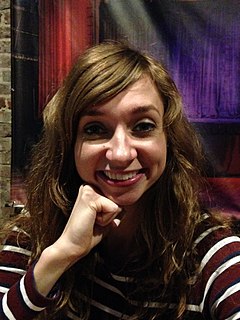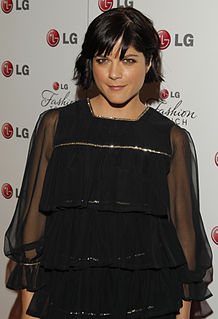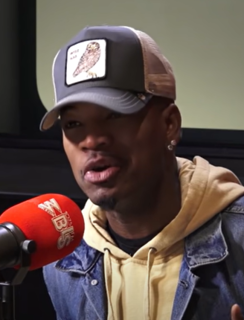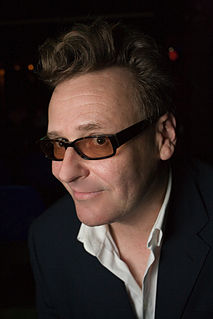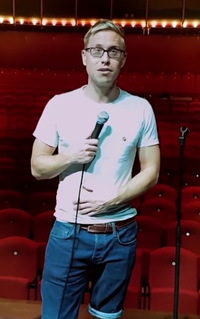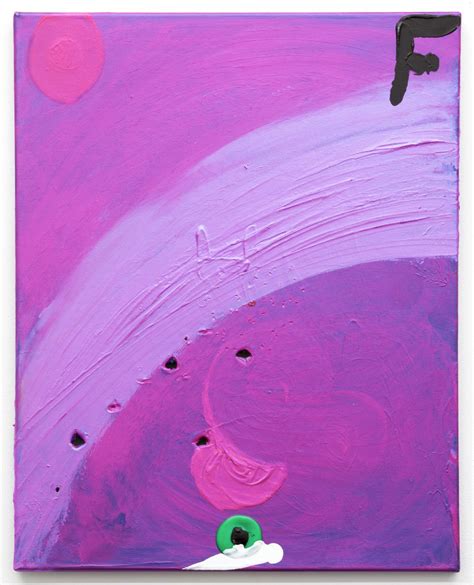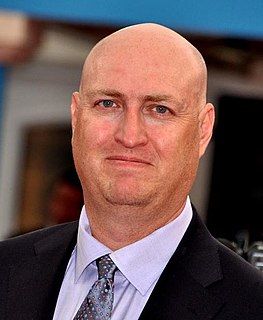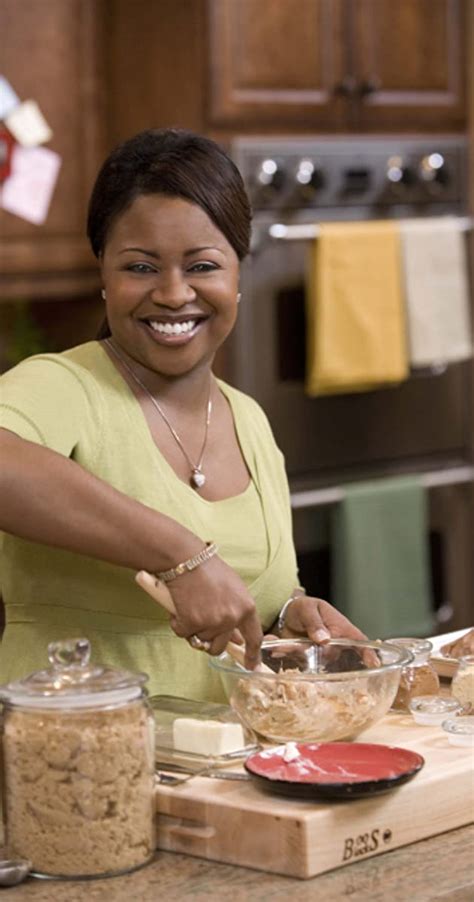A Quote by Paul F. Tompkins
What I love about improv so much is that we are all discovering it at roughly the same time. The performers are maybe, what, a half second ahead of the audience? There's very little lag time. I think of a thing, I say it, then the audience is laughing and it all happened in a second.
Related Quotes
I love creating characters that are ridiculous and flawed. To me, the most important thing about comedy is the joy it can bring to the performers and the audience alike. I love making people laugh and not over-thinking things. Some of my favorite moments are when I am doing an improv scene with friends, and I can't stop laughing during it.
As of right this second my main focus is my new album, it'll be out probably towards the summertime, predominately R&B this time. I had a little stint with the dance music and all of that, which I had a good time with- and I love the audience, I love them for accepting me doing it -but I had to go home on this one. Had to take it back to my roots, and not to say that there won't be one, maybe two songs on there that the dance crowd can get into, but the majority, the girth of the album, will be R&B.
I don't come on to seduce the audience. I don't care if everyone laughs. I can't think about that anymore. If there's anything that a lot of experience on stage and a lot of stage time gives you is the confidence to know that it's ok if they're not laughing every second you're up there. Although that's what drives me and I still go too fast a lot of the time.
I've thought about bands or performers who appear from nowhere: You come out of the greenroom in this secure little unit, then you do this thing and you're shielded from everybody. I'm thinking of brilliant people, like Mariah Carey, who have no interaction. They interact with the audience at the time of the live thing but there's no build up and there's no afterward.
I think one of my favorite pieces I've ever done on the show which was about Hezbollah Israel conflict in 2006 and it was very pointed. It was a beautifully crafted piece of satire and it's a weird thing to say but it had a joke in there about 9/11 and I remember the audience sort of laughing but also kind of not knowing how to respond to that joke and it was just so - and I remember the tension after we did this joke on the air and there was this palpable gasp in the audience, but they were also laughing. And I thought oh, wow, that is something that is not being said in the Zeitgeist.


